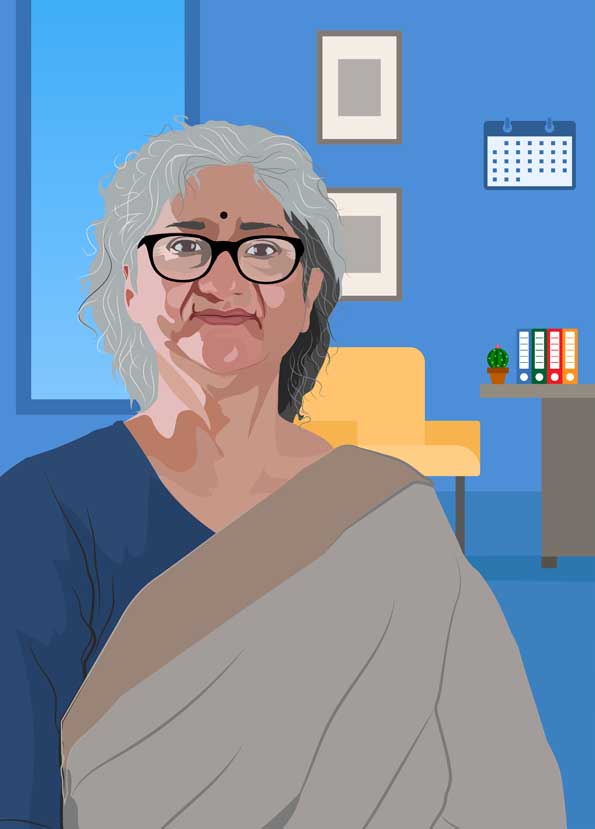“After graduating from architecture and working in the field, I realized that I was not happy with just designing for a few individuals, properties, houses, some institutions, etc. I wanted to understand how cities work, what are the methods and systems in which they grow. That is why I studied urban planning.”
Manvita, driven by curiosity, always wondered why urban environments often failed to prioritize those in greatest need of their services. Recognizing that the efficacy of urban planning hinged on placing people at the core, she made this realization the cornerstone of her perspective. It was Manivta’s upbringing in Russia that instilled in her a strong sense of inclusivity. She firmly believes that good governance is essential for inclusivity. All citizens must get represented and get what they deserve and need from different levels of government. When it comes to sanitation, unfortunately, cities are not inclusive because informal settlements and marginalized communities get left out. Not by design, not by anybody's apathy, but by the overall system's apathy. Manvita believes that inclusive sanitation requires inclusion of geographically challenging areas that need to be catered to, vulnerable people who need to be prioritized, trans people who are interspersed into certain settlements, and all those at the periphery of the city’s existence.
Her childhood impressions motivated Manvite to prioritize communities in her work. She entered Urban Planning purely from an urban poverty perspective and worked at the intersection of sanitation and poverty much more. Manvita acknowledges the slow progress in the sanitation sector, emphasizing the need for more well-designed systems. Despite promising strides, there is ample room for further improvement. She advocates for prioritizing the lives of sanitation workers, ensuring proper equipment, innovative solutions for occupational safety, and making their well-being a top priority for cities.
At Urban Management Centre, Manvita and her team work towards strengthening municipal systems; embedded into all three levels of government and the community. Their focus on municipal systems stems from the fact that the local government is the closest to citizens. Unless one’s city reaches out to them, one will not be able to reach out to it to address their problems. This has driven their advocacy for strengthening and providing more autonomy for local governments. Autonomy, financial and otherwise, is important for cities. Manvita’s vision is to enable robust urban governance particularly in sanitation, to see Indian cities sanitised- right from cleanliness to liquid waste management. Her core belief is that for this to happen we not only require emphasis on technology but also collaboration with people who remain behind the scenes i.e. sanitation workers. Manvita emphasis upon the transformative potential that lies in reshaping the capacity-building and training ecosystem for inclusive sanitation and urban planning. The goal is to empower individuals interested in city planning through university programs and professional courses, providing them with the tools to effectively organize and manage cities in collaboration with the government.
Manvita is the Director and Founder of Urban Management Centre, and has been deeply involved in shaping more inclusive urban systems by working with local governments. She harbours a deep passion for planning cities that leave no one at the periphery, regardless of geographical and socio-economic vulnerability. Having formally studied architecture and urban planning, she has vast experience in training young professionals as well as city officials in designing cities that work for everyone.

